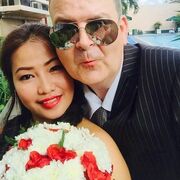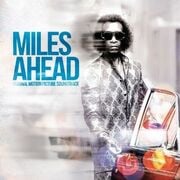New York, NY (Top40 Charts) The album cover of the new Timothy Wenzel instrumental recording, Distant Horseman, portrays a human form sitting on a horse on a far-away alien planet. Wenzel uses his music as well as visuals to explore grand themes about life and living as well as the physical aspects of the universe.
"The music on this album was conceptualized with metaphors and allegories in mind. For example, the 'Distant Horseman' could stand for an alien life-form, or for any of life's challenges. It's about the unknown, the unknowable. If and when the horseman arrives, it is all about how we face it, whether we can leave our fear behind, and meet it with integrity. The way we approach it is what is important. All you can do is prepare yourself the best you can, and then go forward. The interesting thing about the universe is that we have seen so little of it. There are lots of surprises out there. Scientists are often shocked about what they learn as they try to explore it. We need to be open-minded and ready for a variety of possibilities."
Wenzel should know since in addition to being a musician he spent many years as a research scientist. "I wanted an album cover graphic that would make people think. The cover illustration was created specifically for this album by the Brazilian artist
Edson Moraes, an
Internet acquaintance who has provided me with art in the past for my website and videos." There is always a visual element within Wenzel's music which is often inspired by dreams, films, stories and nature scenery. In addition, for each tune he usually seeks out an appropriate piece of artwork which he makes available for viewing on his website.
"This album is about transformation, but also a seasonal journey as a metaphor for an entire life. It covers coming together and breaking apart, falling in love and looking back over our lives, having exciting hopes for the future and realizing at some point it will come to an end. There is music about dancing and being caught up in that moment, but I also wrote about heavier themes such as forgiveness and not being able to know the future. But primarily it is a positive journey of surviving and becoming stronger because of hardships, and then breaking through and finding bliss."
Timothy Wenzel, who has become a leading new age music keyboardist over the past few years, uses his music to explore major concepts and then relates them as analogies that pertain to our daily lives. Musically Wenzel places the most emphasis on piano, which he has played all his life, but he also is a master synthesist and augments the piano parts with a wide variety of instrumental sounds including violin, cello, flute, woodwinds, harp, guitars, bass, drums and percussion, and the wordless vocalizing of men's and women's choirs. He is joined on this CD by a special guest musician featured throughout the recording -- violinist Josie Quick, a member of the progressive groups Perpetual Motion, The Coyote
Poets of the Universe and the Frontera String Quartet, and a teacher at the esteemed Swallow Hill
Music Association in Colorado. Wenzel's music has great appeal in the new age genre, especially because of the haunting melodies and dreamy arrangements that create a sense of peacefulness and relaxation.
Distant Horseman follows Wenzel's previous albums Mountains Take Wing (on which he explored earth and nature), A Coalescence of Dreams (centered on dreams and our personal journey), River Serene (a flowing river serves as an analogy for life) and Summon the Wind (using the wind metaphor to explore life's pervasive forces). More information on Timothy Wenzel is available at his website (timothywenzel dot com). All five of his CDs and digital download tracks from those recordings are available at online sales sites such as CDbaby, Amazon, iTunes, eMusic, Rhapsody and many others. His albums regularly receive airplay on hundreds of radio stations and channels around the world, and always race into the Top 10 on the international Zone
Music Reporter Top 100 monthly airplay chart.
Distant Horseman begins with a series of deep, hauntingly-beautiful pieces such as "A Bend in the River" ("we never know what is around the bend, but we go forward anyway"). The album's title tune continues those thoughts of the unknown ("we do not know if the horseman is a threat or not, friend or foe, but we must be ready"). "On life's journey, sometimes relationships end for one reason or another and we simply are forced to 'Turn and Walk Away'." Wenzel explains the piece "A Night So Cold" as symbolizing "winter, hibernation, the depths of darkness, even the afterlife." The tune "Moments Into Years" is about how "our lives are full of moments, but as we get older we realize those moments add up to years and years," he says, "and the next composition, 'No Tomorrow,' is a reminder that eventually time runs out for all of us."
But the second half of the recording is less introspective and more light-hearted ("like when spring and summer come after a hard, cold winter"). According to Wenzel, "Being 'Forgiven' can be a turning point in our lives. When things blossom in the spring it can seem like 'Colors Dancing.' Then we might look into someone's eyes and connect with them which is what 'Ecstasy Eyes' is all about. We might go with that person to a 'Summer's Dance' and celebrate just as nature is doing at that time of the year. The couple might be falling in love and ask each other to 'Walk With Me,' to take a walk outside and talk with each other and imagine what life might be like with this other person. I close with 'Luminous Wake, Starlit Sea,' a lullaby to fall asleep to where you continue your journey in your dreams."
Wenzel spent his childhood in South Haven, Michigan, where he was born and raised. As a boy he divided his time between being outdoors enjoying nature, but also inside playing the piano. "There was always a piano in our house. It was built by my grandfather who worked in a piano factory." Tim's mother played piano and encouraged him to play. He started plunking on the keys when he was three and two years later was taking lessons. Wenzel says, "I was deeply into classical music at first, but later I started being influenced by rock'n'roll and what I heard on the radio." Initially Wenzel enjoyed Led Zeppelin, the Rolling Stones, Jethro Tull and the Moody Blues, and later U2. As he got older he began to appreciate new age music ("George Winston and the whole rosters of the Windham Hill and Narada labels"). He also enjoys female singers who incorporate some Celtic sounds -- Loreena McKennitt, Clannad, Enya and Sara McLachlan.
Music is Wenzel's second fulltime career following an initial career in science. "Music and science have always been my two main passions. I see a correlation between them. Scientific exploration is full of creativity and is very much like writing a song. In both cases you start with an idea and then explore the possibilities of where it can lead." He earned a BS degree in
Chemistry at the University of Missouri, then his Masters and PhD in Physical Organic
Chemistry at Cornell University. He first served as a post-doctoral researcher in organometallic chemistry at the University of California at Berkeley. This led to a career in research science, first with Union Carbide in West Virginia, and then with Dow Chemical back in Michigan where he still lives. "I primarily worked in making polymers using catalysts -- discrete molecules with a metal atom that does most of the work. Polymers are a chemical compound of repeating structural units. My work was primarily in polyethylene using a new generation of catalysts to make different plastics. The culmination and highlight of my career was when they let me run with a far-out idea I had, and I headed a team that found a way to make two catalysts talk to each other. First one would weave a strand and hand it off, and then the other would weave one, and they created building blocks together. It is a powerful technique to make new types of polymers. It was a major discovery, a home run. Over the years I was issued about 50 U.S. patents."
Wenzel says, "My years as a scientist taught me to analyze, explore and create -- to think about life and our world, and how even sub-atomic particles are important in determining who and what we are. Those thought processes have continued and now I incorporate my lifelong exploration into my music in hopes of passing on some worthwhile vibrations that hopefully will affect people in positive ways."
























